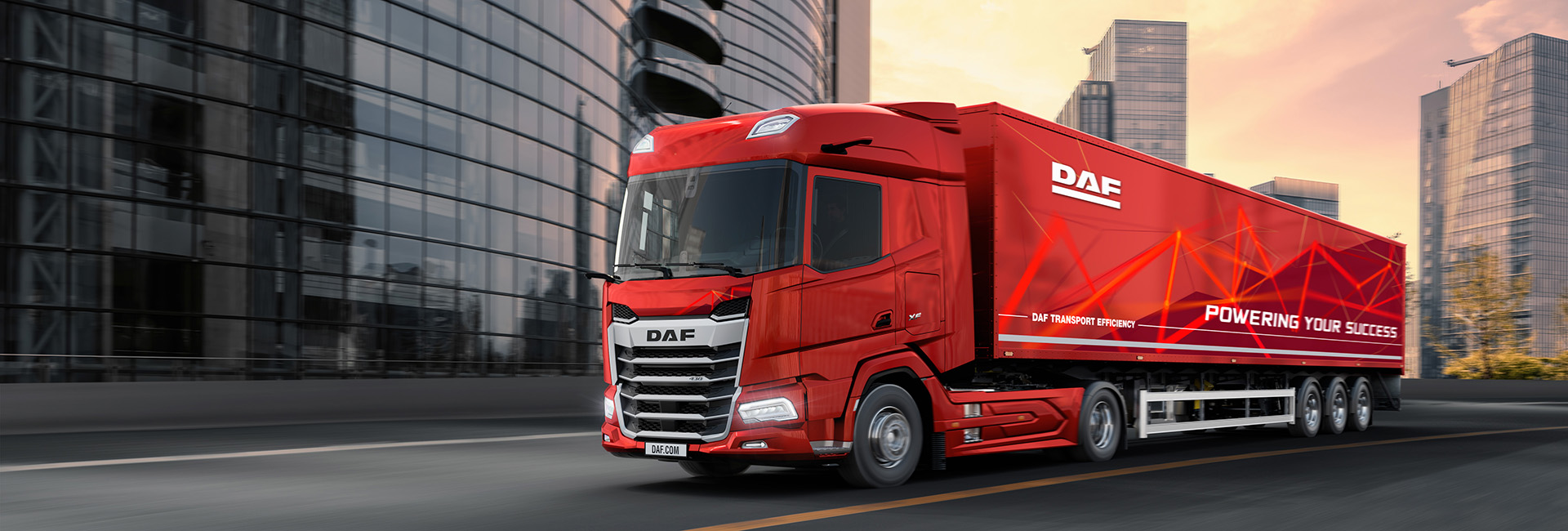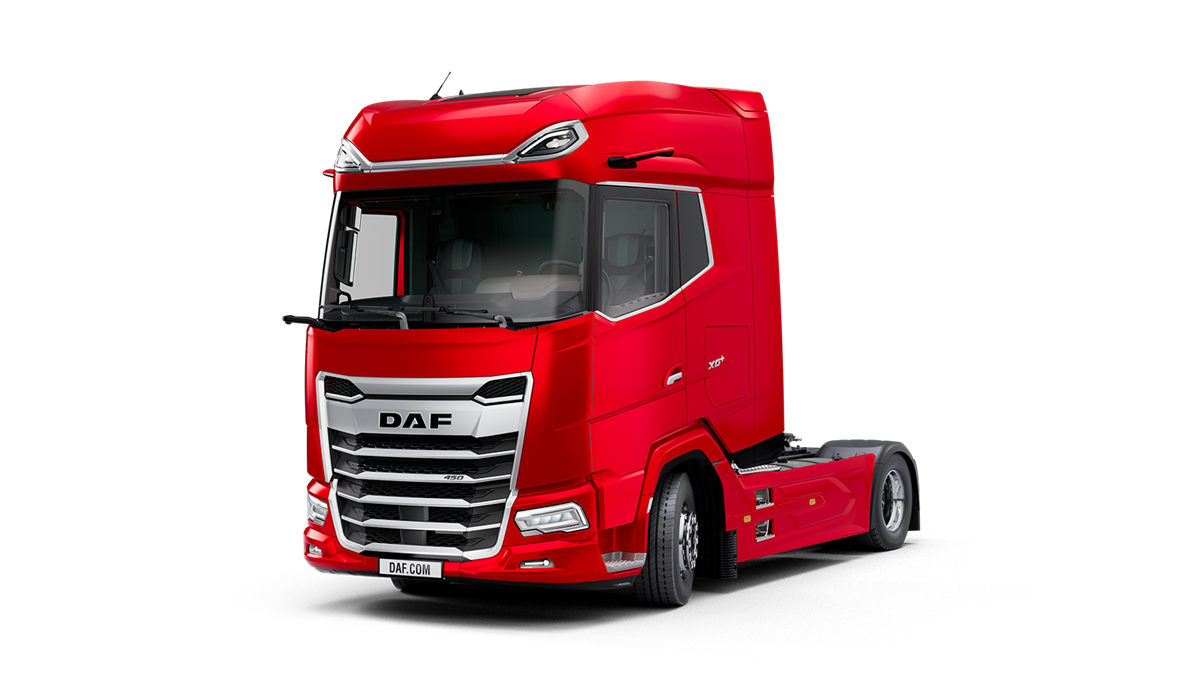
Sustainable transport solutions
A modern truck with a Euro 6 diesel engine emits around 95% less NOX (nitrogen oxide) than a truck from 25 years ago. To put it another way: one Euro 1 truck from 1994 emits as much nitrogen oxide as 20 trucks from the present day. Similarly, emissions of soot particles have been reduced by no less than 97% in the same period of time, meaning that in this respect one Euro 1 truck from 1994 can be compared to 35 modern-day trucks. Also in terms of CO2 emissions large progress has been made over the past years, driven by impressive fuel efficiency improvements.
The New Generation DAF trucks, introduced in 2021, represents the largest design program in our history, which has led to enhanced sustainability in both manufacturing and operation. The trucks’ low fuel consumption (saving up to 10% compared to its predecessor with consequently equal CO2 emission reduction) resulted in the New Generation DAF winning several awards in 2023, including the ‘Green Truck Award’ and ‘European Transport Award for Sustainability’. In addition, during the ‘European Truck Challenge’, the New Generation DAF proved to be the most cost-efficient truck thanks to its very low combined fuel and AdBlue consumption.
In 2024 DAF introduced further driveline and aerodynamic optimizations resulting in another up to 3% fuel efficiency gain, on top of the 10% for the New Generation DAF, thereby setting a new industry-standard. Thanks to their excellent fuel efficiency and low CO₂ emissions, several models of the New Generation DAF meet the Maut Class 3 standards, potentially saving thousands of euros annually in German road tax.
Life Cycle Assessment
At the core of our CO2 impact calculations is the Life Cycle Assessment (LCA). A life cycle assessment is the measurement of the environmental impact of a product or service throughout its life cycle, from the resources used to create the product or service, to its use by the user, and its end-of-life destination. In this analysis, we have reviewed the Bill of Materials of a typical New Generation DAF XF truck with an internal combustion engine and calculated the material usage for this truck. We then calculated the greenhouse gas emission and circularity potential for all the used materials and components.

Finally, we factored in data about greenhouse gas emissions during transport, use, repair and maintenance, and the end-of-life process. The LCA complies with ISO Standards (14040 & 14044). We are applying it to the development of all our new or redesigned components. For almost all of our products, the main impact on sustainability occurs when they are being used by our customers. So, while we consider the ecological impact of all life-cycle phases in our designs, we prioritize the use-phase since that delivers the greatest benefits, both for our customers, as well as for the environment.
Related information
The quick route to...



